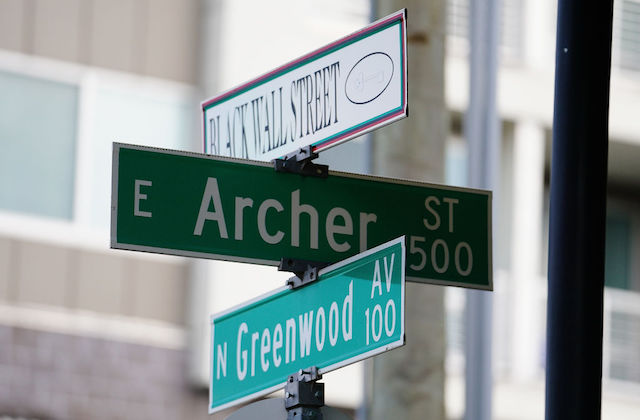On July 9, in a 5-4 decision, Supreme Court of the United States (SCOTUS) ruled in the case McGirt v. Oklahoma that the majority of the land that comprised eastern Oklahoma was in fact a Native American reservation—and the impact on the Muscogee (Creek) people is both massive and critically past due.
The Muscogee (Creek) Nation are the fourth largest tribe in the United States, totaling 86,100 enrolled members. Its borders cover three million acres in 11 counties in eastern Oklahoma. The New York Times reports that the Muscogee lost nearly half of their land in an 1866 Reconstruction treaty, followed by the state selling more of it to private owners, adding, “State officials began denying that there had ever been a Creek reservation on land that became Oklahoma.”
Continues The Times:
When the Muscogee (Creek) Nation filed a brief with the Supreme Court arguing that the court honor the 19th-century treaties that created the reservation, it took pains to point out that the tribe already runs a fully functioning government. The Nation runs three hospitals, a police force and tribal court system and several casinos, which make up a major part of its $350 million budget, according to court filings. The Muscogee (Creek) attorney general pointed out that its police force regularly works with other law-enforcement agencies, and spent 12 hours last winter helping a sheriff’s office track down a non-Native suspect in a double murder.
The SCOTUS decision, reports CNN, declares “that a large swath of eastern Oklahoma, including Tulsa, is Native American land for purposes of federal criminal law in a decision that the state argued could call into question thousands of state prosecutions for serious crimes.”
The ruling means that Indigenous people who are accused of crimes on reservation land will now be tried in Indigenous courts—not state or local ones. “The decision could also touch off a wave of new appeals from Indigenous people convicted by state courts,” writes The Times.
“It’s so momentous and it’s immense,” Joy Harjo, the United States poet laureate and a Muscogee (Creek) Nation member, told the newspaper in an interview. “It marks a possible shift. Not just for Muscogee Creek people, for all Native people.”
The history of the Muscogee Nation is closely linked with African-American history. Members of the Five Tribes—comprised of the Muscogee, Cherokee, Choctaw, Chickasaw and Seminole—brought enslaved people West with them during the Civil War, according to the Times. Following the war, these emancipated people settled in Tulsa in a section called Greenwood and built a thriving, profitable stretch known as Black Wall Street. It was the site of the 1921 riot by whites who killed more than 300 Black residents.
Said Suzan Shown Harjo, a Cheyenne and Creek activist who received the Presidential Medal of Freedom in 2014, to The Times, “You don’t know all of American history without knowing our history.”
